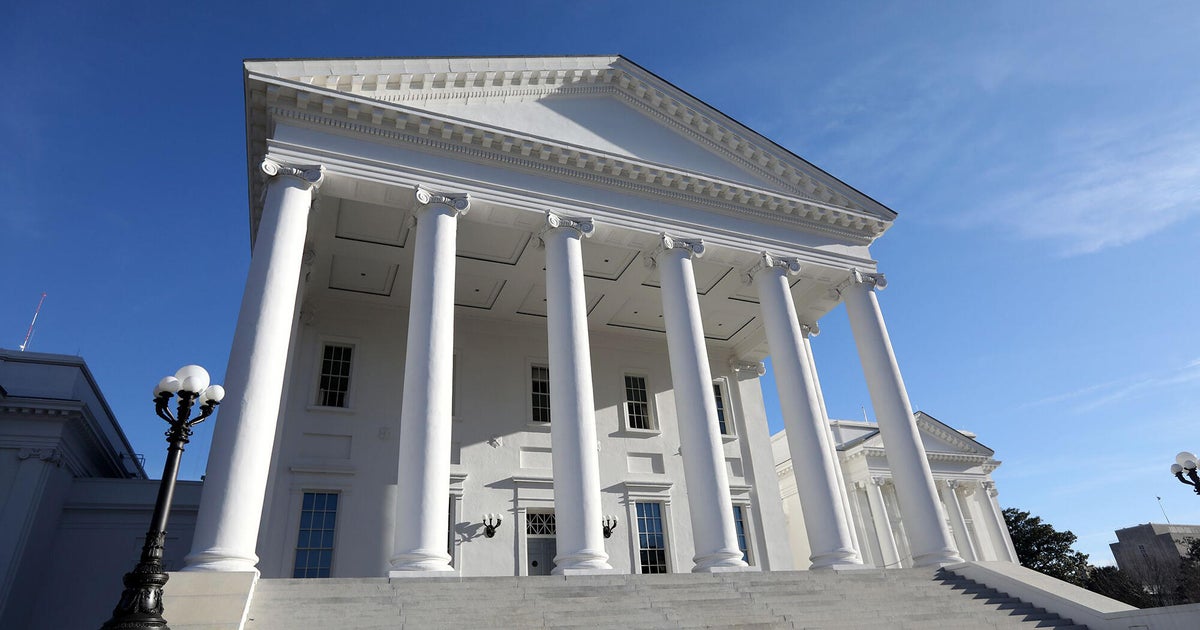Senate prepares to take up $1.9 trillion COVID relief bill
Washington — The Senate is expected to take up President Biden's $1.9 trillion coronavirus relief bill this week as Democrats hammer out the final sticking points in the legislation, including who will be eligible for a new round of stimulus checks.
Senate Majority Leader Chuck Schumer has pushed back against Republican arguments that the bill is too expensive, saying the package is necessary to get the economy back on track.
"It doesn't matter what is in the bill — everything my colleagues oppose is 'a liberal wish list,'" the Democratic leader said in a speech on the Senate floor on Wednesday. "That is what many of them call it. Well, let me tell you, this bill is not a liberal wish list. This is an American wish list."
Schumer's comments came hours before Mr. Biden and moderate Senate Democrats struck a deal to limit eligibility for direct stimulus checks to Americans, lowering the income level for those who would qualify for payments, according to a Democratic source.
The Senate is using the budget reconciliation process to pass the bill, which limits time for debate and allows legislation to pass with a simple majority, without any Republican votes.
Under the rules of the budget reconciliation process, debate on the bill in the Senate will be limited to 20 hours. Republican Senator Ron Johnson said Wednesday that he might ask the Senate clerk to read the full text of the bill, which any senator can request. That would add another 10 hours to the process.
"I will make them read their 600- or 700-page bill, so then every member of the Senate would have time to read it as well," Johnson said in an interview with radio station WISN on Wednesday.
Schumer has expressed confidence that the bill will pass in the Senate this week with support from his entire caucus.
"We want to get the biggest, strongest, boldest bill that can pass. And that's what we are working to do," Schumer told reporters on Tuesday. "We'll have the votes we need to pass the bill."
The Senate is evenly divided, and Vice President Kamala Harris casts any tie-breaking vote, meaning that all 50 Democratic senators will need to support the bill for it to pass. Republicans have criticized the size of the bill and chastised Democrats for using the budget reconciliation process to pass the bill without bipartisan support. Senate Minority Leader Mitch McConnell argued in a speech on the Senate floor Tuesday that Democrats had chosen a "completely partisan route" to pass the relief package.
But Republican Senator Lisa Murkowski indicated to reporters on Wednesday that she had not yet made a decision about how she would vote. Although she said she "can't stand" that the bill is not entirely focused on the pandemic, she called herself "Listening Lisa" and said she would consider the final proposal.
"I can tell you that if you look at Alaska's economy, and when the nation has been doing well, my state has been into recession," Murkowski told reporters, explaining that her state sorely needs assistance. "And so nobody gets it, nobody understands it. So I've got to be that that pushy advocate."
The 20 hours of debate will be followed by a "vote-a-rama" later this week, in which the Senate will vote on a series of amendments. Traditionally, the minority party has used the "vote-a-rama" to inflict political harm on the majority by forcing votes on hot-button issues. Most amendments introduced by the minority party fail, as an amendment requires a simple majority of votes to be added to the bill.
Senator Bernie Sanders, the chair of the Senate Budget Committee, has said he will introduce an amendment to raise the federal minimum wage to $15 per hour. Senate Finance Committee Chair Ron Wyden and Senate Health, Labor, Education and Pensions Committee Chair Patty Murray will join Sanders in offering the amendment.
"I intend to offer the bill that will raise the minimum wage to $15 an hour, and we'll see how the votes go," Sanders told reporters on Monday. "But let me be very clear: If we fail in this legislation, I will be back. We're going to keep going and, if it takes 10 votes, we're going to raise that minimum wage very shortly."
A provision raising the minimum wage was included in the initial relief bill, but the Senate parliamentarian ruled last week it could not be included under the "Byrd rule," which requires provisions included in a bill passed through reconciliation be budget-related. The House passed the relief bill including the minimum wage provision last week.
It is unclear whether Sanders' amendment will be able to reach the threshold to pass, as Democratic Senators Joe Manchin and Kyrsten Sinema have expressed concern about raising the minimum wage to $15. If the amendment did pass, Republicans could raise a point of order against it, as the parliamentarian has ruled inclusion of such a provision would violate budget reconciliation rules. Harris, in her role as president of the Senate, could dismiss the point of order.
A group of progressive lawmakers sent a letter to Mr. Biden and Harris on Monday, urging Harris to dismiss any point of order brought by Republicans, which would overrule the parliamentarian's decision. Republicans could then try to challenge Harris' decision, but would require 60 votes to overturn it.
"The outdated and complex Byrd rule rooted in restricting progress must not be an impediment to improving people's lives. You have the authority to deliver a raise for millions of Americans," the letter said.




